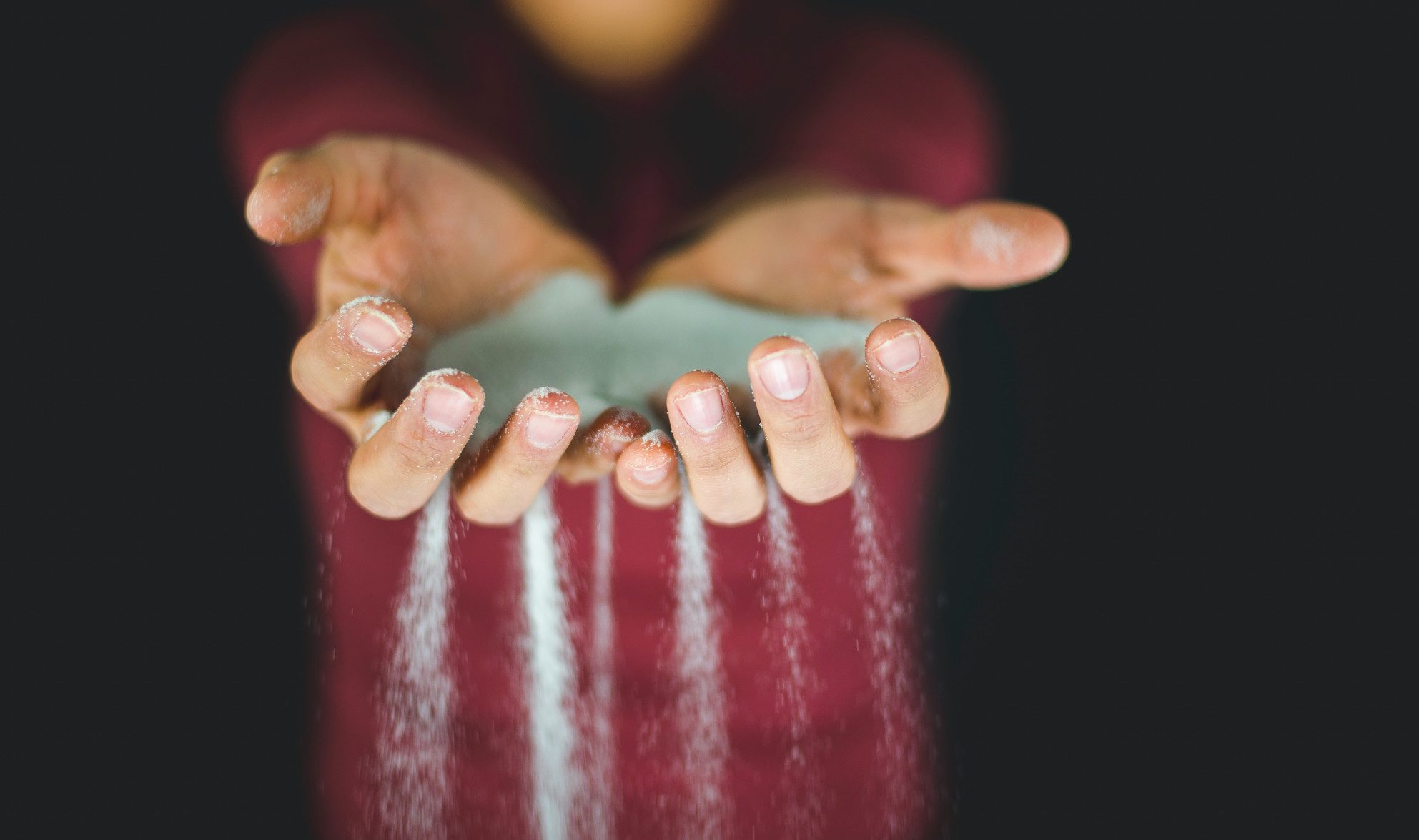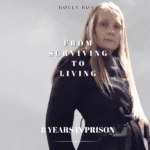
November 2013 – Prison staff retrieved and delivered me to my caseworker. Social Services in Washington state had called. My youngest son Tim, aged 11, was in hospital for emergency surgery. Scared, I had many questions. My caseworker had no information. It would be many days before an update.
I entered prison with a strong sense of self-efficacy, humanity. According to the article Self-Efficacy: The Foundation of Agency by Albert Bandura: “Perceived self-efficacy refers to beliefs in one’s capabilities to organize and execute the courses of action required to produce given levels of attainments. Unless people believe they can produce desired effects by their actions, they have little incentive to act. Efficacy belief is, therefore, the foundation of agency.”1
I sought information and knowledge as keys to strategic decision making. Prison starves one of information. I’d suffered data deficit for years.
Are you in the middle of a challenging circumstance? Do you or a loved one have difficult decisions to make? How important is good information to your decision making?
Prison, a small town, is designed holistically for lifelong care. Onsite can be found library, chapel, gym, clinic, education, cafeteria, job sites, and more. I had a daily work schedule, planning my day around it. Prison sabotages daily agency, too.
Appointments outside one’s work schedule are not revealed to an inmate, to avert the ability to future plan. Future plan for what I have no idea. At first I found that odd. It is odd, dehumanizing.
I made a mistake. Compounding the mistake was a recent inmate escape attempt which had staff on edge.
According to the research article The Impact of Power on Humanity: Self-Dehumanization in Powerlessness published May 2015 in China, “Power allows people to control outcomes with respect to both the environment and the self. This control is considered to be a fundamental human need; therefore, it follows that powerlessness will disrupt an individual’s sense of humanity…
“People experience self-dehumanization not only when they perceive themselves as less human but also when they believe that others attribute less human traits to them. Daily engagements in disadvantageous relationships (e.g., in the low-power position) appear to be sufficient to cause us to perceive ourselves as possessing fewer human qualities…As agency, freedom, and cognitive flexibility are all qualities commonly thought to be central to human nature, powerlessness may cause people to feel as if they possess fewer Human Nature traits.
Dehumanizing others can be conceptualized as a subtle daily phenomenon.”2
A dizzying array of the unexpected always left me feeling inhibited, ungrounded. Failure to appear somewhere was a reason for discipline, yet advance notice was disallowed. At this time I was threatened with seg a second time.
One morning I appeared on the roster for a 1pm Property appointment. I also started work at 1pm. Unsure what to do I asked for help. Guards and staff offered no solution, no help. Chaos reigned but Punishment ruled. Best guess – go to Property first; so I did.
I made a mistake. Compounding the mistake was a recent inmate escape attempt which had staff on edge. At the time Shakopee had no fence. A recent arrival had raced past a guard into neighboring properties. The guard didn’t chase, rolling her eyes as she hit the alarm. The inmate was quickly retrieved, hiding in nearby bushes, and given an additional 5 years to serve.
A week later I leaned against the wall across from Property, urging the window up so I could hurry to work. I’d fast-walked it, a ridiculous hustle – arms straight, elbows locked, legs churning. We were never permitted to run nor jog. I was first in line.
Radios squawked to life across the counter. “We have a missing inmate. AHO. I repeat, missing inmate. AHO.”
Without fence Shakopee managed inmates with sign-out books and locked buildings. Hourly, buildings opened, people moved, buildings closed. Work sites reported in, sign-out books reviewed. I’d signed out to work as usual but at Property I waited. My worksite reported in and I was officially missing.
Just as Property opened for business alarms ripped across the campus. Bundled in my winter coat, holding an armful of books I sighed. Great, a delay. Radios squawked to life across the counter. “We have a missing inmate. AHO. I repeat, missing inmate. AHO.”
I pushed off the wall and spoke into the chaos. “I’m Aho.” It didn’t register. I cleared my throat and repeated louder, “I’m Aho. I’m right here!” Heads whipped up. Behind the counter an older guard slapped her hand on the counter and spat, “Where’s your ID badge?”
It was pinned to my shirt, trapped under layers of winter clothing. Shifting books in my arms I struggled for it. Coat zipper caught, my books slipped to the floor with a crash. Pounding the counter she demanded, “WHERE’S YOUR ID BADGE!!”
Stunned I froze. Time stopped, everyone held their breath. With shaking hands I stepped to the counter, freeing my badge with a snap. “Here,” I said.
Jerking the card to her nose, she squinted. “Next time a guard asks you to do something, you don’t ignore it! Understand?” She growled. “You do it!” she snapped. She peered over her glasses at me, scowling.
More guards swooped in, lifting me off my feet. My pockets were searched, turned inside out, and I was yanked down the hallway to a holding room. Tossed inside, a metal door clanged behind me.
Left alone I shuffled to the metal bunk and sat. I studied the block wall. Somehow graffiti was on it. I read it. Words were scratched into the paint of the bunk. I read that too. I laid down and cried.
I lay there for hours. Sometimes a guard would come, peaking through the small square window in the door. I ignored them. Once a guard came to taunt me. “I heard you had a real bad attitude at the Property window! Gave the guards there a real hard time!” I didn’t know how to respond. I cried harder.
Eventually released I was sent to my room and given DLOPs for being in an unauthorized area. I felt wrung out.
Timmy recovered from his surgery. From hospital he was placed in foster care. Feeling anxious and overwhelmed depression came back and again I began missing work. I was fired from the gym in December and placed on UI (Unassigned Idle status). I would spend 3 months locked in my room 21 hours a day.
Social services reports began arriving from Washington. Horrible. Crushing. Painful to read, they were also outrageous.
UI means unemployed. Warehoused. I had little money. Didn’t matter, I lacked opportunity to make calls. While Tim remained in foster care I’d been forgotten as his parent. I’d been assigned a Washington state public attorney, but no effort had been made to contact me.
Finally in February I risked asking a guard if I may call my attorney. He said yes and I did. “Yes?” she answered, surprised to be hearing from me.
“Hi,” I responded. “I have not received any news about my son since last November, and now it is February. I was told he had emergency surgery and then went into foster care. You are my attorney? How is he? When can I speak to him? How do I contact my son?”
Surprise leaked out of her voice as she answered, “No one has contacted you?”
It was my turn to be surprised. Who would contact me? What should I expect? “No, no one,” I threw back. “What is going on?”
“You have a right to visit your son, which in your case would be by phone. You have a right to all information and reports regarding him as well. I’m surprised no one has contacted you before now,” she rejoined.
I thought but did not say, ‘Why didn’t you contact me, aid me in acquiring my rights?’ Instead I asked, “How can we start that process? Let’s get that done now, please.”
Soon phone calls were arranged around my limited UI schedule, made more challenging by the 2 hour time difference. I looked forward to receiving a job again so I could be more available. Even more upsetting was the sudden price hike to call Tim, which increased from 50 cents to $5 for a fifteen minute call.
Torn in many directions, I struggled to support all of my children emotionally best I could. I switched to writing more letters and calling less frequently. I began selling jewelry and sketches to inmates for money.
Social services reports began arriving from Washington. Horrible. Crushing. Painful to read, they were also outrageous. In addition to poverty as a barrier in communication, prison shakedowns, raids, riots and lockdowns created an impediment to scheduled phone visits with my son.
When people feel they are treated like objects (a denial of HN) they report a range of states of cognitive deconstruction (e.g., emotional numbing)
Failure on my part to call Tim for any reason would be written up as “a refusal on Ms. Aho’s part, an uncaring mother, to visit her son.” Often I cried in my room during a prison lockdown just feet from the phone during a scheduled visit, unable to call. I raged against these lies, mischaracterizations. I grew to hate Social Services.
The article The Impact of Power on Humanity: Self-Dehumanization in Powerlessness also states: “Human Nature (HN) traits comprise characteristics that are typically or essentially human — that is, traits that represent the ‘core’ of a human and occur in the context of interactions in which people ‘disregard the existence of other people as social partners’. If mechanistic dehumanization represents such a lack of relatedness perception, it would understandably be apparent in self-perception. This is also consistent with the notion that when people feel they are treated like objects (a denial of HN) they report a range of states of cognitive deconstruction (e.g., emotional numbing).”2
I became increasingly withdrawn, disconnected and numb. I lay in my room for hours, locked in. My weight increased to 190 pounds on my 5 foot frame. I hated life, myself.
In March 2014 I was assigned a job in maintenance. I had nearly 2 years to go before I would experience hope.
9 Men of low degree [in the social scale] are emptiness (futility, a breath) and men of high degree [in the same scale] are a lie and a delusion. In the balances they go up; they are together lighter than a breath. 10 Trust not in and rely confidently not on extortion and oppression, and do not vainly hope in robbery; if riches increase, set not your heart on them. 11 God has spoken once, twice have I heard this: that power belongs to God. Psalm 62:9-11
2 https://journals.plos.org/plosone/article?id=10.1371/journal.pone.0125721#sec035
Discussion Questions:
- Holly describes a situation where she was not informed about her youngest son’s emergency surgery promptly. How important do you think timely and accurate information is in making decisions, especially during challenging circumstances? Have you ever faced a situation where you felt uninformed or lacked crucial information?
- Holly describes challenges in navigating the prison’s scheduling and appointments, leading to a situation where she was unknowingly labeled as a missing inmate. How does the lack of transparency in scheduling and communication impact Holly’s experience, and can you relate to facing challenges due to lack of information in your own life?
- The passage narrates an incident where Holly is wrongly identified as a missing inmate, leading to her confinement and emotional distress. Have you ever experienced a situation where you were wrongly accused or misunderstood? How did it impact you emotionally?
- Holly shares her struggles with depression, weight gain, and a sense of numbness during her time in prison. Can you think of instances where mental health impacted your ability to cope with challenges? Do you need help with issues like these today?
- The passage touches on Holly’s efforts to maintain connections with her children through letters and phone calls despite the challenges. How important do you think maintaining connections with loved ones is during difficult times, and how do you prioritize such connections in your own life? Are you facing relationship challenges today?
- The biblical passage from Psalms emphasizes the idea that power belongs to God. Have you experienced a reliance on faith during difficult times?
READ MORE
- Introduction: Get to know From Surviving to Living!Click to rate this post! [Total: 0 Average: 0]Click to rate this post! [Total: 0 Average: 0]
- Chapter 1: BEFOREClick to rate this post! [Total: 0 Average: 0]Click to rate this post! [Total: 0 Average: 0]
- Chapter 2: JAILClick to rate this post! [Total: 0 Average: 0] I was arrested in March 2010. Again I heard the familiar questions, “What were you thinking? Why did you do that?” I had long believed myself to be the source of conflict in our family. Our family’s shared religious beliefs, strong convictions, and high expectations defined… Read more: Chapter 2: JAIL
- Chapter 3: BAIL, SENTENCING, & PRISON INTAKEClick to rate this post! [Total: 0 Average: 0] A year passed after I was first arrested in 2010 before I was sentenced and sent to prison. During this year I served 3 months in county jail, was released on bail, and had many court hearings. I passed the year in a mental fog, in… Read more: Chapter 3: BAIL, SENTENCING, & PRISON INTAKE
- Chapter 4: ORIENTATION (CHANGE, SHOCK & AWE, SUICIDE WATCH)Click to rate this post! [Total: 0 Average: 0] I have said I was unaware previously that I needed to change. What does that mean? I believed myself to be a good person or at least a person who understood what good is, even if I lacked the ability to consistently and reliably perform it.… Read more: Chapter 4: ORIENTATION (CHANGE, SHOCK & AWE, SUICIDE WATCH)
- Chapter 5: A PADDED ROOM (THE PICKLE SUIT)Click to rate this post! [Total: 0 Average: 0] Suicide watch in Shakopee takes place in the facility’s segregation unit. While inmates are most often taken to seg for disciplinary reasons, suicide watch and health concerns are other reasons why segregation is also used for administrative detention. It was October, 2011. Seven months had slid… Read more: Chapter 5: A PADDED ROOM (THE PICKLE SUIT)
- Chapter 6: WoWClick to rate this post! [Total: 0 Average: 0] In October 2011, as I waited to be released from seg, I received a kite (internal institutional mail) from the director of Shakopee’s Women of Wellness program (WoW). She invited me to participate in the six week “in-patient” mental health program. Already terminated from my job… Read more: Chapter 6: WoW
- Chapter 7: General Assembly (Burning Rubber)Click to rate this post! [Total: 0 Average: 0] It is November 2011. I finished the WoW program and became eligible for the workforce. Nervously I checked my mail daily, waiting for a job assignment. I’d been fired from my last job so I could not choose the next one. It would be assigned to… Read more: Chapter 7: General Assembly (Burning Rubber)
- Chapter 8: RING TOSS & DOPPELGANGERSClick to rate this post! [Total: 0 Average: 0] I began my job in General Assembly the end of November 2011. Also called Rubber, it was housed in a large warehouse building shared by several educational and industry job opportunities. There were 2 main jobs – ring inspections and cutting rubber. Rings were actually gaskets… Read more: Chapter 8: RING TOSS & DOPPELGANGERS




























